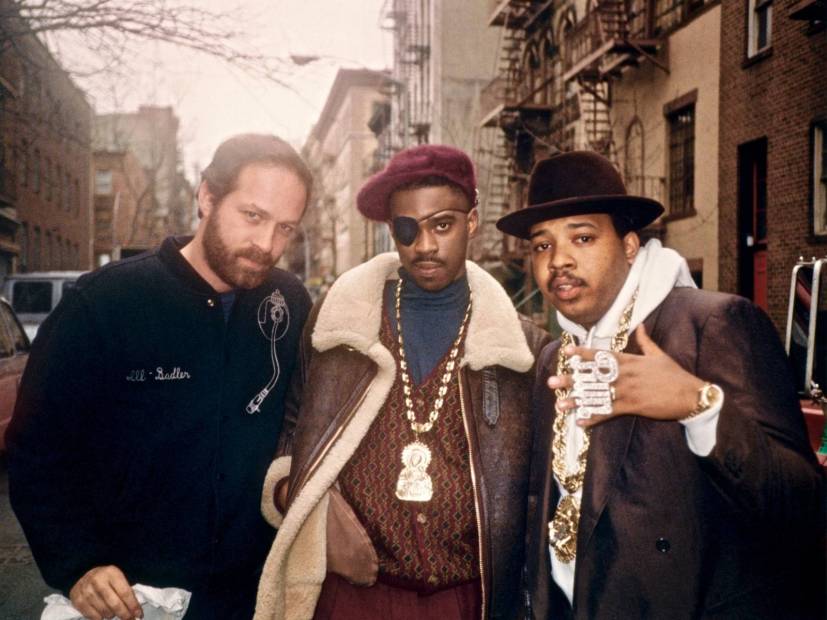Speaking to Bill Adler is a gift. As the founding VP of publicity at Def Jam Recordings, his vast breadth of Hip Hop knowledge is staggering. From tales about traveling to Europe with Run-DMC to his mind-blowing collection of Hip Hop memorabilia, Adler is the real deal.
His dedication to the culture stretches back decades. After years of working at a record store in Ann Arbor, Michigan and writing for the Ann Arbor Sun, Adler eventually evolved into a pioneer in his own right, a visionary.
After abandoning the Michigan college town for the Big Apple, Adler magically found himself working for Def Jam co-founder Russell Simmons. By wisely saving all of the press kits record labels had sent him at the record store, he’d started to amass a small library of information.
Embed from Getty Images
Over the decades, it’s grown into a massive archive of Hip Hop’s early days — in fact, it even pre-dates the genre. His collection was so compelling, Cornell University asked to house part of it in the Cornell University Hip Hop Collection.
The aptly titled Adler Hip Hop Archive is a treasure trove for any Hip Hop enthusiasts and includes old Salt-N-Pepa press photos, clipped reviews on Eric. B & Rakim’s Follow The Leader from the Village Voice, old Public Enemy photos and bios for groups such as Grandmaster Flash & The Furious Five and Spoonie Gee.
In a recent interview with RealStreetRadio, Adler detailed the origins of his career, explained the magic of a newspaper’s “morgue” and looked back on the night Jam Master Jay was murdered.
RealStreetRadio: Why did you initially have the foresight to archive everything?
Bill Adler: The roots of the collection at Cornell go back to 1972 or 1973. Let’s say 1973, which is before Hip Hop. And for what it’s worth, let me just say, I’m 68 years old, so I’m virtually older than anybody else in Hip Hop except for the photographer Ernie Paniccioli. And if I had to guess, I’m older than Kool Herc. It’s just a way of saying that I’ve seen some things and I started to write about music in ’73 or so for a hippie newspaper, an underground newspaper in Ann Arbor, Michigan. I’d stopped going to school, but I stayed in the city. And there was a newspaper called the Ann Arbor Sun.
They asked me to start writing about music, and I did. I’d been working in a record store for years by then. And I was a music lover, record collector and working in this music store. We would be visited every week by salesmen for the record labels, and they’d bring us the promo records to listen to. They’d typically bring us bios and press photos. For years, I just tossed them. At least I hadn’t cared about that and certainly hadn’t collected them.
When I started to write about music, I thought to myself, “I should hold on to this stuff because it’ll be useful to me as a writer.” And real particularly, given my kind of preference for black music, there were fewer biographical resources and research resources on hand at that time. That was the start of my collecting along these lines. Fast forward more than 10 years later, I start working for Russell [Simmons]. First of all, he didn’t have any idea what I would do for him. We just vibed initially and he said, “Why don’t you come work with me?” And so I did.
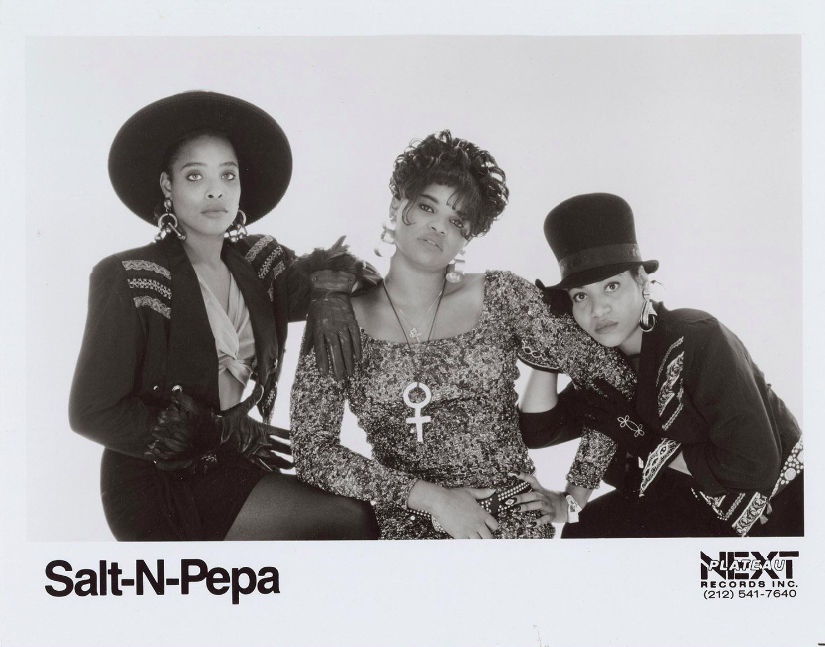
Adler Hip Hop Archive
RealStreetRadio: And you had no experience as a publicist at this point, right?
Bill Adler: I had very little experience as a publicist, but I had a lot of experience and by that time, I’d been writing professionally about music for 10 years. And so I’d certainly spoken to enough publicists and I saw what was going on with Russell. He had a very small operation at the time. He did not have a publicist. And I thought to myself that I could be better than nothing. He’s got to have somebody do this for him and his artists. So I started to do it. And by that time, I didn’t pay any attention to rap since The Sugarhill Gang came out in ’79 and didn’t add in materials on those artists to the other stuff that I was collecting. And so then boom, all of a sudden I’m working with Russell every day and I’m in the position of generating this material, at least the bios and the photos and the rest of that stuff.
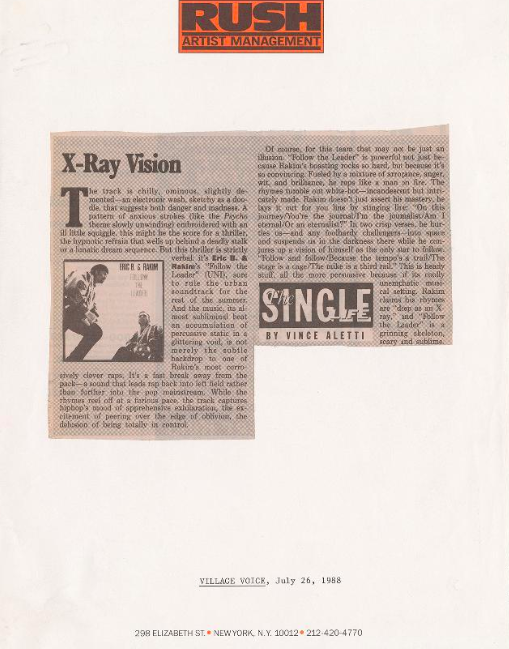
Adler Hip Hop Archive
RealStreetRadio: The stuff that you used to get from the labels.
Bill Adler: Right. So now I’ve got to write it. I’m writing the bios and the press releases and the tour itineraries and on and on. And it kind of naturally, I’m going to hold onto at least one copy of all of that. And then also, the other time, and there were other things that would kind of fall into my lap. Every rap magazine. And I would clip every rap magazine and add their relevant articles to the folders I had already established for these important artists, whether or not I worked with them.
RealStreetRadio: So you were making up your own morgue as you described it? [Editor’s note: A morgue is “a room containing reference files of older material in a newspaper office; also, the material contained in such a room.”]
Bill Adler: Yeah, I was. It’s funny, I didn’t think of it in those terms. I kind of detoured to Boston for four years, between ’76 and 1980, and while I was there, for two years, between ’78 and ’80, I worked for the Boston Herald American and they had a morgue. And I kind of was drawn to it, I thought it was a great thing. And then just a few years later, I started to put together, well actually by that time I didn’t put it together on my own , but I’d never thought of it as a morgue. But yes, it’s what an old fashioned newspaper calls a morgue. Yes.
RealStreetRadio: That is so cool. You taught me that yesterday, I believe.
Bill Adler: Oh, you hadn’t heard that term?
RealStreetRadio: No, I hadn’t. And it’s funny because I’m old enough. My first journalism class was I think ’93 and so we were still cutting. It was still very manual at that time.
Bill Adler: It’s old fashioned, it’s terribly old fashioned. May I advise you, I mean, you can quote me doing this or not, but I mean just between you and me, there’s a movie that came out, a very good documentary. It came out about three, four years ago called Obit. Did you see it?
RealStreetRadio: No, but I heard you recommend it and I was like, “I need to watch that.”
Bill Adler: I’m just saying it’s cool because it’s kind of close focused on the team of obit writers at the time. And sure enough, that held my attention for the duration of a documentary. Now at least because I’m going to read the obits right after I read the front page every day.
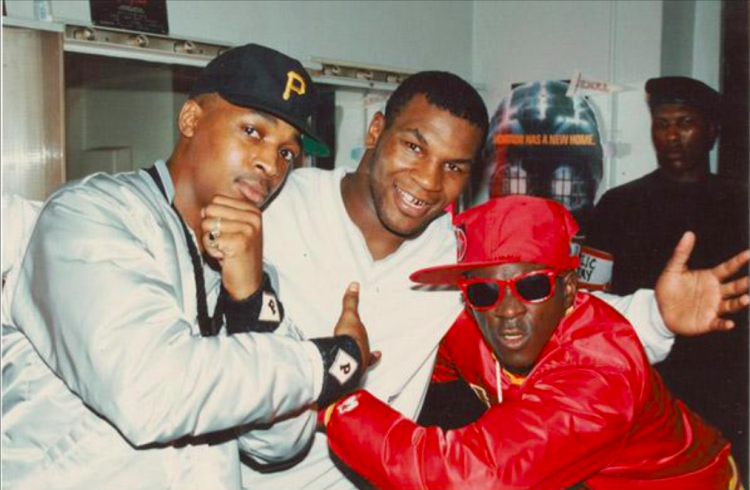
Adler Hip Hop Archive
RealStreetRadio: Me too. That’s so funny. Why is that? Why do people always want to read the obits?
Bill Adler: You know why? Because it’s biography. That’s why, I mean I don’t read all the obits, but I mean again, it’s in line with my lifelong interest to people in the arts and musicians in particular. And so I want to read it. But they detoured during the course of that film to The New York Times’ morgue, which is vast. It’s like the size of a football field. And then undoubtedly the-
RealStreetRadio: That sounds like a playground for us.
Bill Adler: Well, it’s a universe. It’s just a great resource and when they talk about it in 2020, it’s going to sound beyond antique. It’s newspaper clippings going back undoubtedly to the 1800s organized by subject. And they said there’d been a time when there were dozens of people working down there. Then that was all gone and there was one guy, some little hermit down there who did all the work.
But undoubtedly, those materials were still useful. People don’t understand. I think younger people maybe in particular — and I don’t want to diss — but I will tell you as somebody who is pre-digital himself, not everything that was born physical has made the transition to digital. And so as astonishing as the internet is, as astonishing as the worldwide web is, there are holes in it. There’s information that’s missing. What’s so gratifying to me about putting together this collection is that certainly by the time I started working with Russell and cultivating relationships with writers and editors, after a while, some of these guys would come to me and say, “Go listen, I’m researching the story on whatever artist. What have you got on them?”
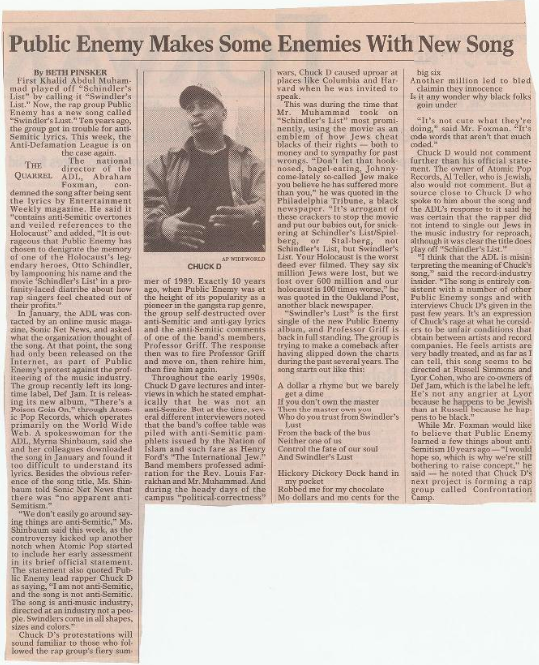
Adler Hip Hop Archive
Bill Adler: So the materials that I’d put aside for myself, research I’d put aside for myself, became useful to other folks as well. And so with all of that in mind, I mean, that’s really kind of what Katherine Reagan was confirming when she decided this would be a good thing to add to the collection she’d begun to build at Cornell in terms of just Hip Hop. What do you mean by archiving Hip Hop and what does it mean to have collections? What does it mean that a distinguished university like Cornell is going to collect materials on Hip Hop? And she’d already done kind of the more typical stuff — she had photographer’s collections and she had a collection of great flyers by, oh fuck me, I can’t think of the guy’s name, but there was a great early makers of flyers who’s since died.
RealStreetRadio: Oh, Phase 2?
Bill Adler: No. This is a black man and he died in a fire. It was really weird. But she had his whole collection of flyers and she had Joe Conzo’s photos.
RealStreetRadio: I love Joe.
Bill Adler: Yeah, well, he’s a lovable dude. So she caught wind of what I was doing, and she says, “You know what? This would be a good compliment to what we already have.” And so I would say it’s to her credit. And again, one of the gratifying things to me is individual researchers travel to the campus in Ithaca, New York to look at the physical files. But I’d stipulated when I sold the collection to Cornell that they would have to commit to digitizing this stuff and make it available online.
If there’s one thing I know, it’s that Hip Hop is a global culture and there’s global interest in this. Nobody would pretend that it’s easy for most people to get to Ithaca, New York. Ithaca is kind of remote, and I really loved the idea that some of these materials would be online and people anywhere could access them. And Catherine and Cornell have agreed, so that’s really an ongoing process. It’s not finished yet. We’re still adding stuff to it, but they’re committed to making it happen.
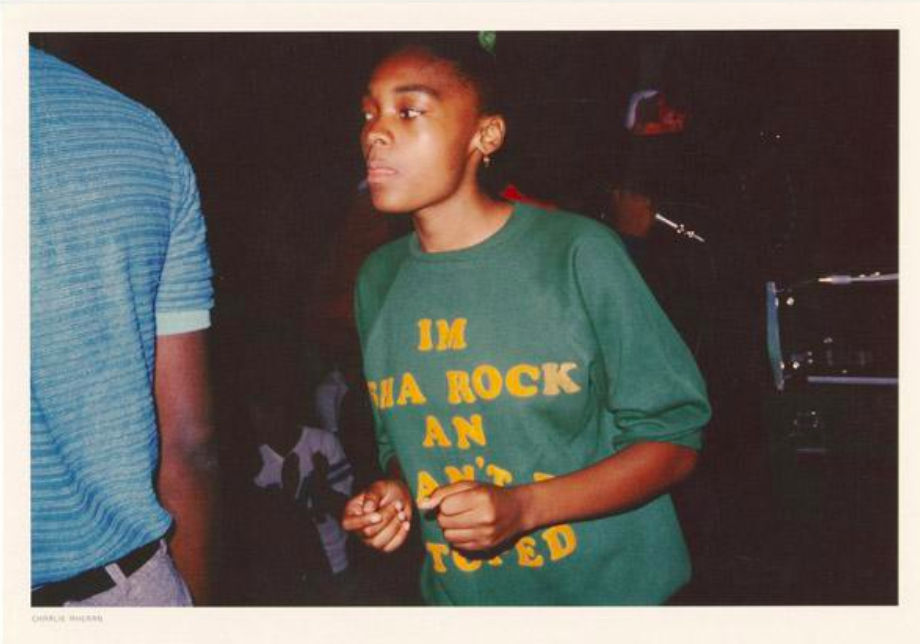
Adler Hip Hop Archive
RealStreetRadio: I’m looking at some of it right now. Was it hard to let go?
Bill Adler: No.
RealStreetRadio: Really?
Bill Adler: No, it wasn’t, because I continue to collect those kind of materials. At this point, I sold the collection to them in July of 2013 I think. So that means it’s going on seven years that I’ve continued to collect this stuff. I’ve got several more files worth filled with it.
RealStreetRadio: But it won’t be the same as that magical era like Def Jam was.
Bill Adler: I don’t know what to say about it. I mean, I’m glad that my collection includes materials on the pioneering artists. Yes. But then again, it depends how you measure it. So many of those folks are still alive and well, and some of them still make news.
RealStreetRadio: Right. Like the Beastie Boys doing all their stuff, the surviving Beasties, I should say.
Bill Adler: All of that. So to the extent that they’re going to generate news, I’m going to collect it.
RealStreetRadio: Oh OK, cool. Let’s say you go to the bookstore and find music magazines. Are you still cutting out articles?
Bill Adler: Actually, it’s so ridiculous. I accumulated so much of this stuff that I couldn’t go through it kind of in real time. So I through it in boxes. And so I’ve sort of been going through the boxes as best I can over the course of decades now, and yet I still have boxes full of stuff that I haven’t managed to go through and clip. That’s one thing. Otherwise, I read the New York Times every day. If there’s something in The Times, I’ll clip that. I got on an airplane to San Francisco a few weeks ago and in the airport, I saw an issue of Fast Company magazine. Do you know it?
RealStreetRadio: Yes.
Bill Adler: They had Chance the Rapper on the cover and I thought, “That’s kind of unusual.” So I plunked down whatever it was, eight or nine bucks — which is expensive — and I bought the whole magazine so that I can clip it with this guy on the cover. I added it to my file on him.
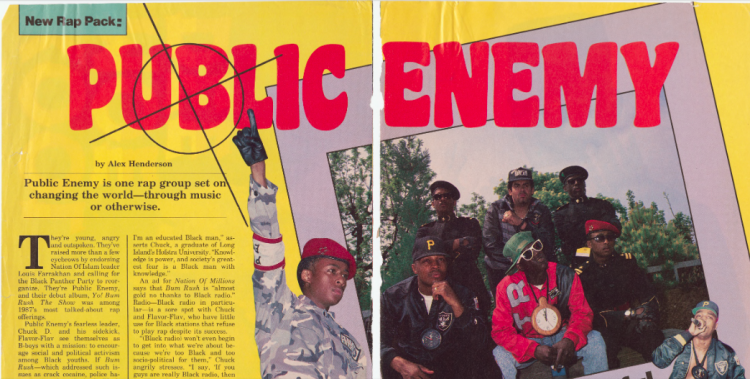
Adler Hip Hop Archive
RealStreetRadio: So you have a file on Chance the Rapper, too.
Bill Adler: Of course.
RealStreetRadio: What are some of the newer artists that you do have files on?
Bill Adler: If they’re making news and certainly if they show up in The Times. And by the way, you’ve got Jon Caramanica at the New York Times. You read him?
RealStreetRadio: Sometimes.
Bill Adler: He’s so fantastic, but the range of what he writes about and the depth as well on any individual substance is really stunning to me. So if he writes about, it will alert me because I can’t pretend that I log on to RealStreetRadio every day. You know what I mean? I don’t feel the need to stay current per se, except this way I’m trying to think of what else. If Diddy makes a speech at the Grammy Awards, it’ll make news. If Snoop attacks Gayle King, the New York Post is going to write a story about it, and I know that. I’ll actually spend the money to buy a copy of The Post, which is painful. Then, I’ll clip that story and add it to my file on Snoop. Because I don’t have a file on Gayle King. She’s not of compelling interest to me this way but Snoop is.
RealStreetRadio: Did you see Snoop ultimately apologized?
Bill Adler: Well, something he walked it back.
RealStreetRadio: Yes he did. He said he had a talk with his mamma. So you wrote for Rolling Stone. I’m curious how that happened.
Bill Adler: I don’t think I wrote half a dozen stories for them. And it didn’t go beyond some short pieces. So it’s not like I’ve had tremendous success. And I can tell you more about my adventures with them, but it’s not necessary. But having said that, a couple of things are critical. Number one, Rolling Stone today is not what it was in my generation and so there’s that.
RealStreetRadio: I have Eminem, Dr. Dre, Rick Rubin and a few others on my dream list of interviews, but they seem so unattainable. As a former publicist, do you think that’s smart of an artist to never talk to press?
Bill Adler: I think the balance has shifted in the current age and the balance of power has really shifted to the artists with social media, so who needs to talk to a journalist? Think of somebody like Beyoncé. Do you think she does any media at all?
RealStreetRadio: No.
Bill Adler: Either she doesn’t do it period with anybody else or if she agrees, “Yes, I’ll do a photo shoot with you” or “I’ll sit down for an interview with you,” I promise you she imposes a whole bunch of rules. It’s going to be done on her terms or it’s not going to happen because guess what? She doesn’t fucking need you. So with all of that said, that’s a very heavy list that you put together, and I know that you would conduct respectful interviews with them, but are you working for any of them? No, you’re not.
RealStreetRadio: Yeah, exactly. Yep. That’s the hard part.
Bill Adler: But they don’t need it. They don’t.
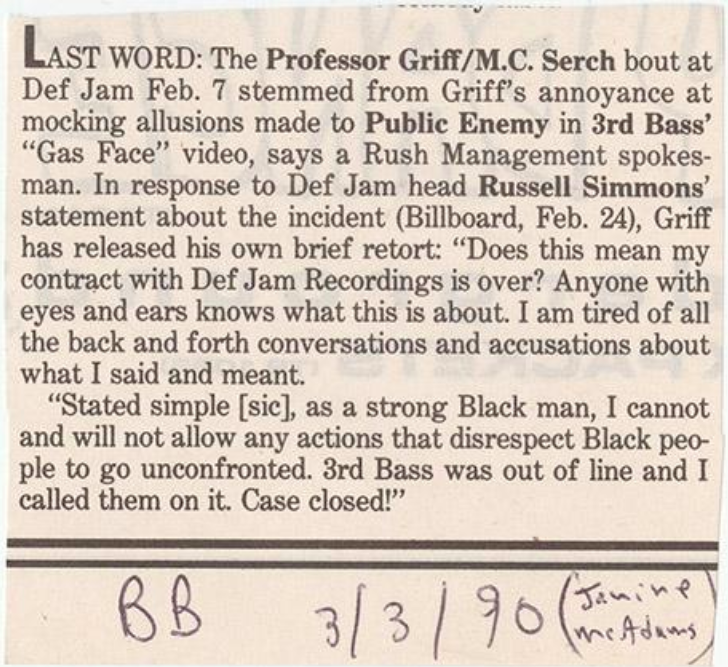
Adler Hip Hop Archive
RealStreetRadio: What’s one of your craziest memories from the Def Jam era?
Bill Adler: What I’m thinking of is kind of dull in a way. I’ll tell you a story that’s not embarrassing really to anybody, but it’s something that just occurred to me. Run-DMC went on the road with a bunch of kids from the neighborhood. They called themselves the Hollis Crew because they were from Hollis Queens, right? And one of the members of that crew was a guy named Raymond White. He was known as Runny Ray and Ray was the sweetest guy and it just so happened he just died of pancreatic cancer within the last couple of weeks.
I went to a memorial service for him last weekend and we’re in a church, and the woman running the service asked if anybody wanted to get up and talk. Members of the family and dear friends got up over and over again. I loved Ray and I thought of something, so I got up and I told the story about him. And I knew it was OK, and I’m glad I said something loving about him, but I didn’t tell a story that I would’ve had to take a half a step outside to tell this because it wasn’t really about Ray, it was about Run.
Bill Adler: I started working with Russell and them in June 1984. In December of that year, they go to England for the first time and they do very, very well. They come back and I asked Run, I said, “Well, what did you make of it?” And he said, “I don’t see any future there.” I said, “What’s the problem? What are you talking about?” He says, “The french fries at the McDonald’s in London are not like the french fries at the McDonald’s in Queens.”
RealStreetRadio: That was his big take away?
Bill Adler: So, boom, if you want to use that, I mean, it’s not about sex or drugs or anything.
RealStreetRadio: Right after we get off the phone, I’m interviewing DMC again. So it’s kind of good timing because we’re going to talk about the 50th anniversary of adidas.
Bill Adler: Oh, good. Very good. When you talk to him, tell him the story I just told you and ask him what he says because … I mean, I think of Run by contrast to Jay because — I think that Jason [JMJ] was more open-minded and I think Run typically was content to do a show and go back to the room, go back to the hotel. Jason was going to do the show and then he and Lyor were going to hit the town, party and soak up the local culture.
RealStreetRadio: Right. That’s what I would do.
Bill Adler: Right. But Run wasn’t like that, I guess. I mean, I don’t know if I want to say all of that. Just let the story sort of stand for itself.
RealStreetRadio: I watched Who Killed Jam Master Jay? on Netflix.
Bill Adler: Yeah. I’ve seen four or five of them by now.
RealStreetRadio: I hadn’t seen the footage of Chuck D showing up and he was so upset. What was that time like when he was murdered?
Bill Adler: I didn’t believe it. I was home that night and got a call at around seven o’clock. It was somebody writing a story and they said, “Jam Master Jay was killed. Do you have any comment?” I said, “What the fuck are you talking about?”
RealStreetRadio: Are you kidding me?
Bill Adler: I hadn’t heard it. I think I hung up the phone and I turned on the T.V. and at that moment they’re broadcasting footage of Jay covered on a stretcher being carried down the steps of this building. And, yes, there was Chuck, Lyor [Cohen] and I can’t remember who all else, but they’d got the word and they went out.
RealStreetRadio: Just tragic.
Bill Adler: May I tell you something, the more tragic thing to me, the more egregious thing to me is that the case hasn’t been solved 17 years later. And that pisses me off so much that I teamed up kind of behind the scenes with the writer for The Daily News named Larry McShane. As of October of last year, he wrote a story about the cold case that is the death of Jam Master Jay. The headline encapsulates what’s most maddening about it. The headline was “17 years, no arrest.”
RealStreetRadio: “17 Years, Zero Arrests, A Grim Anniversary of Jam Master Jay’s Murder.”
Bill Adler: Right? Oh, you found it already? I didn’t know you’d look it up right now. Yes. So that’s the thing that’s so goddamn maddening to me because I mean, I think it’s pretty clear. Well, I don’t want to go into it, but the idea that it’s a cold case and that the police haven’t made any arrests, it’s a crime against justice. I mean, it’s a brand new crime to me.
RealStreetRadio: I was talking to my dad yesterday because some ridiculous new Tupac movie is suggesting he’s alive and well in New Mexico and was able to escape the hospital in Las Vegas. It’s just a bunch of bullshit. But my dad’s like, “It’s so common in Hip Hop, these murders aren’t solved. It’s bizarre.” You have Tupac, you have Biggie, you have Jam Master Jay …
Bill Adler: But it’s not just Hip Hop. It’s part of this larger thing, which is black folks who are killed. I mean, there are a couple of things going on. One is, very generally I heard once, that 70 percent of the murder cases that are solved are solved because a witness comes forward. So that’s one thing. But more broadly, when a black man is killed, it’s not unusual at all for it never to be solved.

